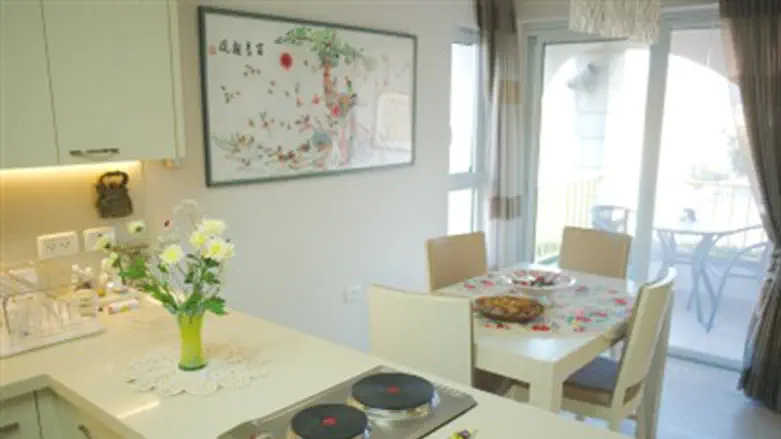
New research published on Monday by the Bank of Israel shows how Israel's housing crisis has harshly cut into the ability of young couples to buy a home.
The research, which was conducted on figures between 2002 and 2012 on home acquisition, shows that prices are rising at a much higher rate than the increase in salaries.
Incomes for young couples as salaried employees went up nominally by 63%, whereas housing prices rose 72% with most of that increase coming after 2008 - a year in which a global financial crisis occurred and US President Barack Obama was elected for the first time, after which he quickly put pressure on Israel to stop building in Judea and Samaria, forcing a building freeze in 2009.
The research pointed out that young couples who are first-time homeowners made up a third of home purchases. However the age of homeowners keeps increasing, as couples struggle to afford a home.
In 2002, 62% of 35-year-olds had an apartment; by 2012 that figure was down to 60%. Likewise the median age to buy a first apartment went up by a year or two to the age of 32.
Interesting results were found by the research in terms of the median relation between the price of a home and the amount of years it would take for the total income of the young couples' to cover the price.
Among those in the middle percentages of earners, that relation went from 5.8 years in 2008 to a whopping 7.6 years in 2012, showing an increase of 30%. That figure is drastic when contrasted to higher percentage earners, among whom there was only a 9% rise in the years needed.
Further illustrating the gap between different earning brackets, the research showed the top 30% of earners make up 30% of the population but 50% of home buyers. By contrast, the lower 20% of earners make up 20% of the population - but only 10% of home buyers.
Apartment prices have been soaring amid a housing crisis in Israel, as the government imposes a months-long one-sided freeze on Jewish construction in Judea and Samaria, an area reportedly 90% unpopulated and highly under-developed, which many suggest would solve Israel's housing crisis.
Eastern Jerusalem is also being hit by the freeze, in an area where there are reportedly 40,000 illegal Arab housing units rising at a rate of 800 a year, with some charging the status threatens to cause a de facto division of the capital.